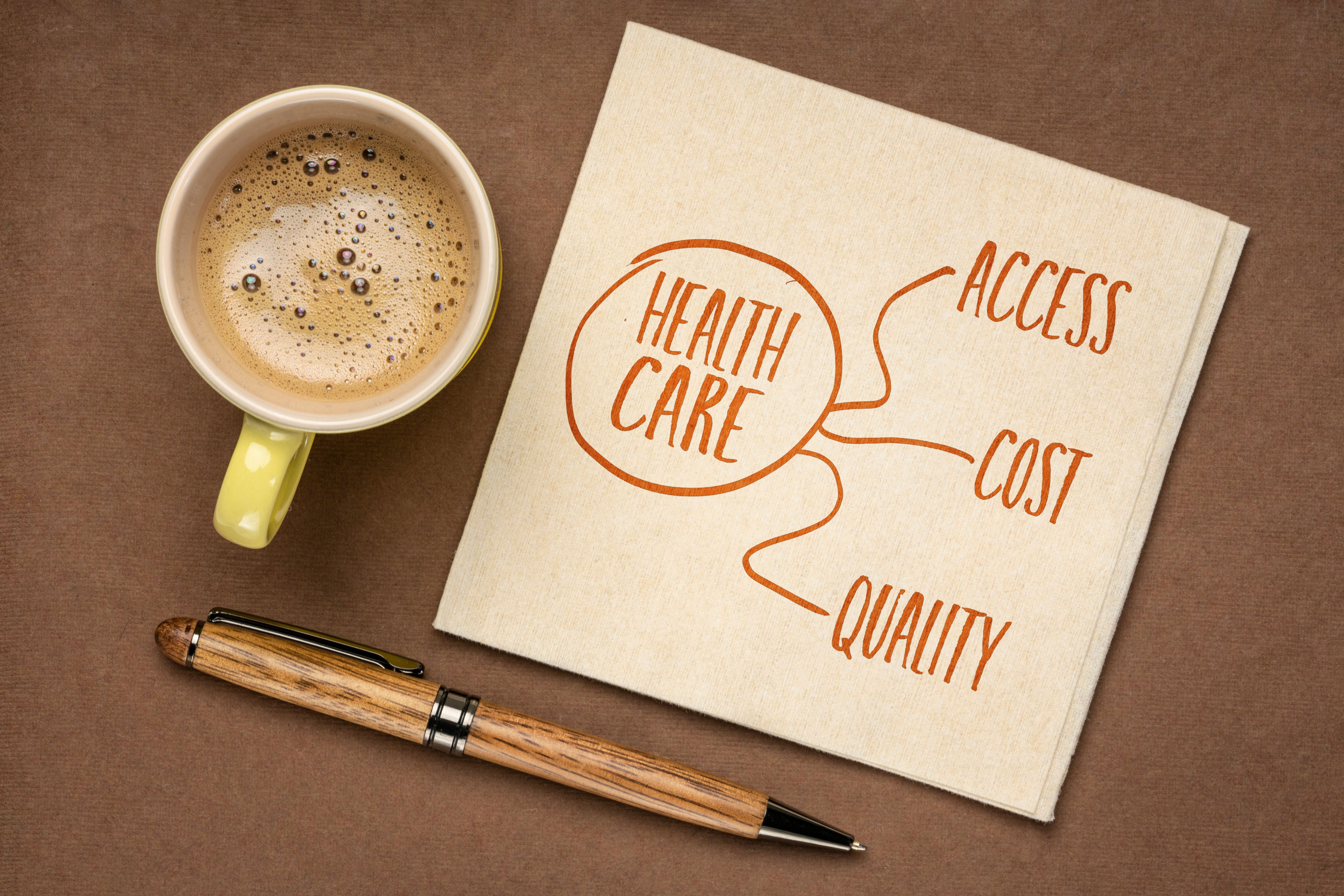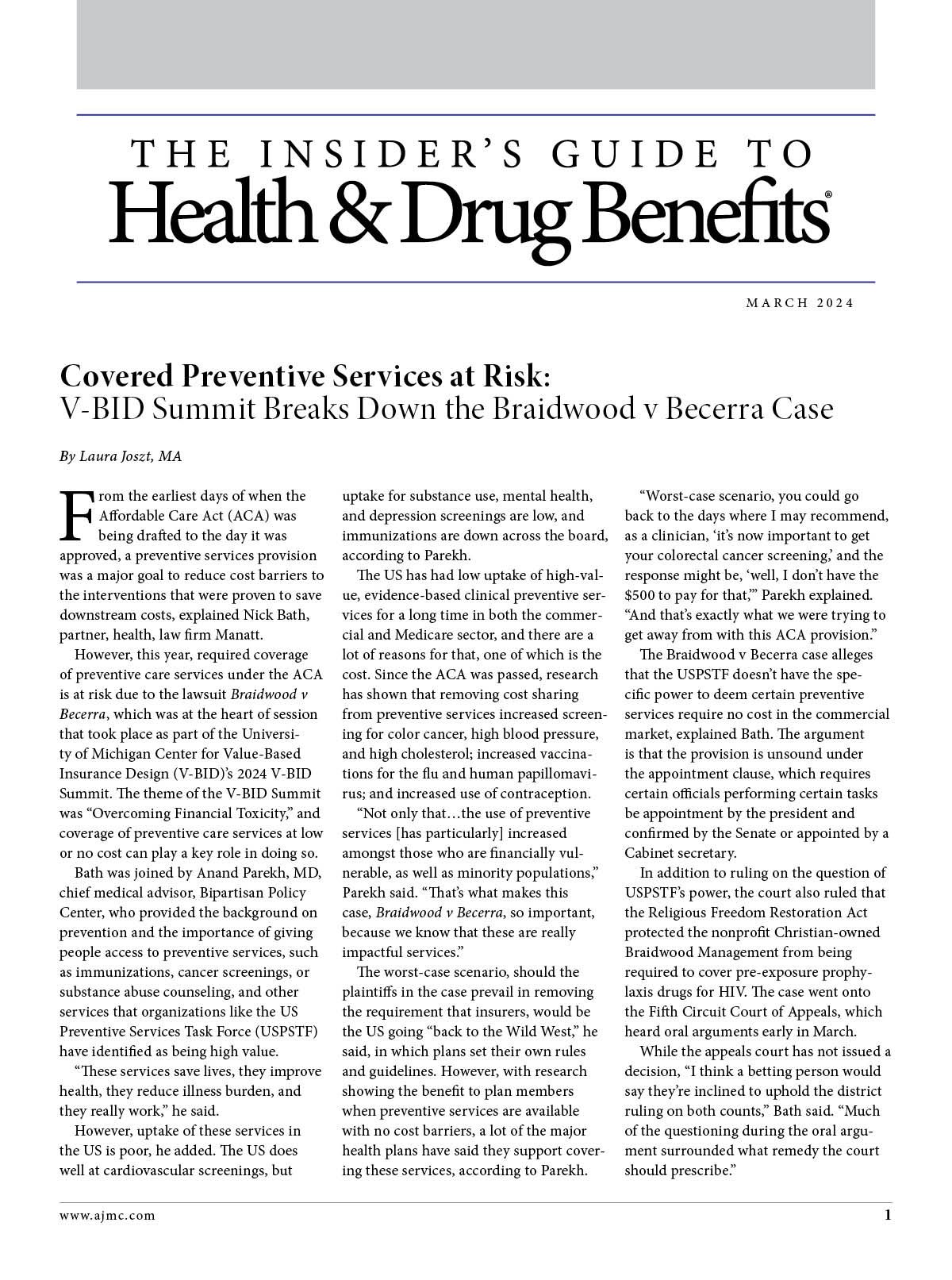- Center on Health Equity & Access
- Clinical
- Health Care Cost
- Health Care Delivery
- Insurance
- Policy
- Technology
- Value-Based Care
PAN Foundation Reports the State of Patient Access Among Individuals With Chronic Conditions
A comprehensive analysis by the Patient Access Network (PAN) Foundation explores the state of patient access for adults living with chronic conditions in the US.
The state of health care access among patients with chronic conditions was given an overall C-grade rating in a report by the Patient Access Network (PAN) Foundation, which highlighted significant sociodemographic barriers that have contributed to unequal health care access, positive health outcomes, and life expectancy in the US.

The Pan Foundation launched the State of Patient Access initiative in 2024, with the aim of increasing awareness, education, and implementing policy to reduce barriers and disparities that surround access to health care.
“Health care in the United States has become unaffordable and inaccessible for many patients, even those with health insurance and other resources,” according to the report. "Though disparities run deep and wide—rooted in racism and bias, structural inequities, social and economic disadvantages, and systemic inefficiencies—challenges accessing and affording needed health care have become all too common for everyone.”
This research was based on 2 national surveys conducted by The Harris Poll in August to September 2023, which included 2502 patients with chronic conditions and 251 primary care providers (PCPs), 150 nurse practitioners or physicians assistants, and 100 registered nurses.
In this report, the researchers identified 5 key areas where health care challenges exist, including overall access to care, relationships to health care professionals, affordability of prescription medications, access to treatment through health care plans, and financial toxicity.
The researchers calculated an overall composite index score for all 5 categories, as well as individual scores for each subcategory. These scores were measured at the total patient level and for a variety of patient population subgroups to highlight any disparities in access to care.
In total, the state of health care access was rated a 75.8 or “C” based on the scorecard grades from each category.
Overall access to care received a 78.8 or a “C+”, finding that access is not just challenging for everyone, but it is even worse among historically marginalized communities. Not only did patients report the quality of care they received was poor, but 48% of patients reported facing logistical barriers, such as trouble getting to appointments and financial challenges paying for needed care. Additionally, people of color (57%), younger patients (70%), and LGBTQIA+ patients (77%) were more likely to report experiencing logistical barriers to care.
Trust in health care professionals received an 84.2 or “B” grade, with 96% of patients that said they trust their PCPs, specialists, and nurses. However, 28% of patients reported experiencing interactions with their health care professional in the past 12 months that prevented them from receiving care, and some patients felt that their health care professional did not take their concerns seriously.
Affordability of prescription medicine received an 82.3 or “B-” grade, with challenges especially prevalent among Hispanic, Native American or Pacific Islander, and LGBTQIA+ patients. In total, 20% of patients said their prescriptions were not affordable, and 36% had to take financial steps, such as reducing spending or taking on credit card debt to afford their medications.
Access to treatment through insurance received a 62.8 or “D-” grade, and a failing “F” grade among Hispanic, Native American or Pacific Islander, and LGBTQIA+ patients, as well as younger patients and those with lower incomes.
Financial toxicity received a 70.7 or a “C-” grade, finding that patients of color (31%), LGBTQIA+ patients (41%), and younger patients (36%) were more likely to report higher levels of financial toxicity than others.
These findings help to inform advocacy groups, policy makers, and industry leaders on the disparities and burdens of accessible health care, especially among marginalized communities in the US.
“As an annual, flagship initiative of our new Center for Patient Research, we hope to see improvements in how adults with chronic conditions perceive and experience access to needed care and treatment, year over year,” according to the report. “Because until everyone has access to affordable, equitable health care, we will keep advocating for change.”
Reference
State of Patient Access. PAN Foundation. March 19, 2024. News Release. Accessed March 22, 2024. https://www.panfoundation.org/state-of-patient-access/.

